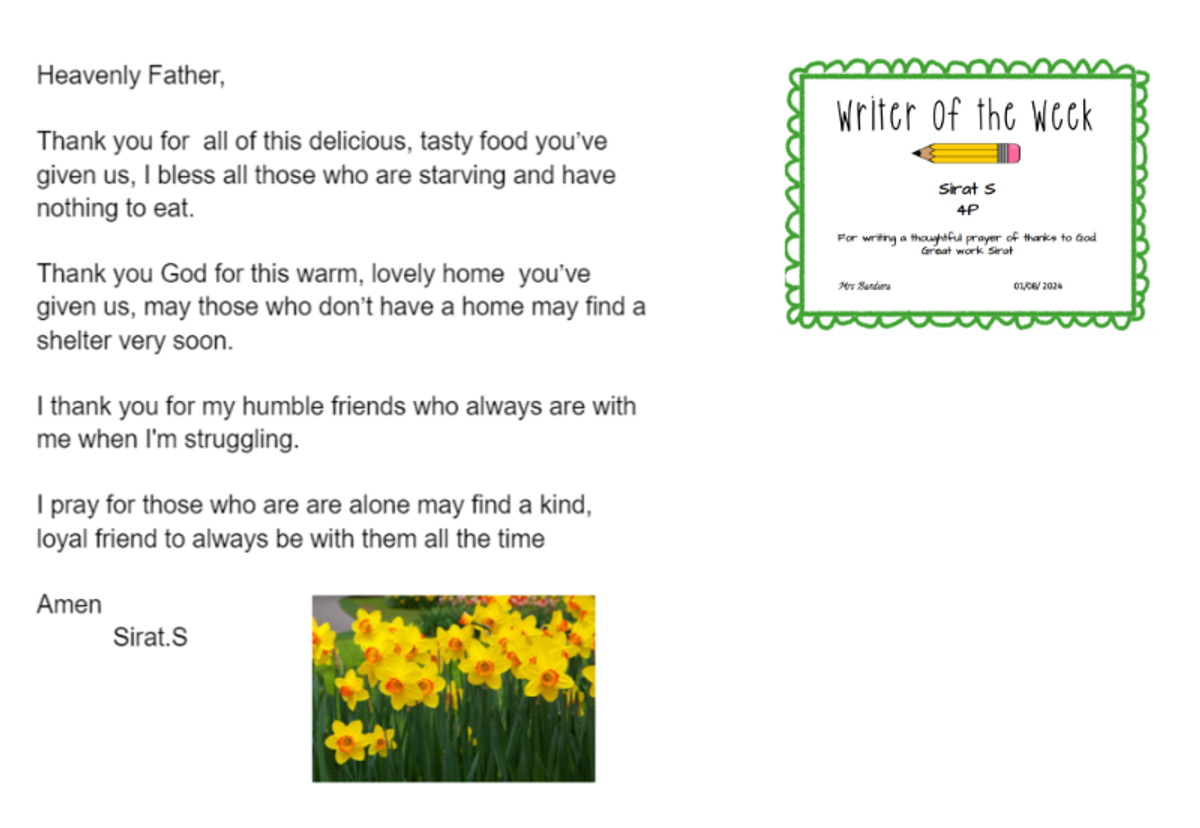Literacy News
Connie Bandiera, Literacy Leader

Literacy News
Connie Bandiera, Literacy Leader


Victorian Premiers’ Reading Challenge


With only 24 days left in the Challenge and 2230 books read, St John’s is well on the way to completing a most successful campaign. 34 St John’s students have completed the challenge and along with others who may complete the challenge by 06 Sep, 2024, will receive a certificate of achievement signed by the Victorian Premier and former Premiers. Remember, it’s never too late to increase your involvement in the challenge.


St John’s Writer of the Week Award
Calling all young authors from Prep through to Year Six! Please send through any writing pieces that you are proud of and would like to feature in our newsletters. All types of writing is welcomed and a certificate will be awarded to all contributors. So come on, pick up your writing tools and write away!
Send all pieces to cbandiera@sjheidelberg.catholic.edu.au with your name and class or pass it on to your class teacher.
Check out the Writer of the Week for this edition:-


Practice in reading aloud is very important for literacy development. Reading with a parent or carer is a great opportunity to do this. Here is some advice for parents about how to help their child.
The ‘Pause, Prompt, Praise’ method is research-based and effective. When your child is a beginning reader and has difficulty reading a word, the following has been shown to be the best way to help them:
1. PAUSE for around 3-5 seconds—this is important because children can often work it out if given the time. They read more slowly than we do and need time to think. If we jump in too quickly, not only do we make them reliant on us to help them, but we undermine their self-confidence.
2. PROMPT—if the child cannot read the word, we can offer them a phonic prompt.
3. PRAISE is an important part of reading and you should give specific praise when they have corrected an error or read the word correctly after a prompt. Praise should be specific, e.g: “You figured that out by yourself” or “You worked that out with only a little bit of help. ”
For older students who might misread a word and continue, wait until they get to the end of the sentence before stopping them. Sometimes the reader will realise their mistake because it doesn’t make sense—and then self-correct—but they often need to get to the end of the sentence to realise this.
We want readers to be able to read for meaning, and it’s an important skill for them to develop. If we immediately stop and correct them again we undermine the development of this process.